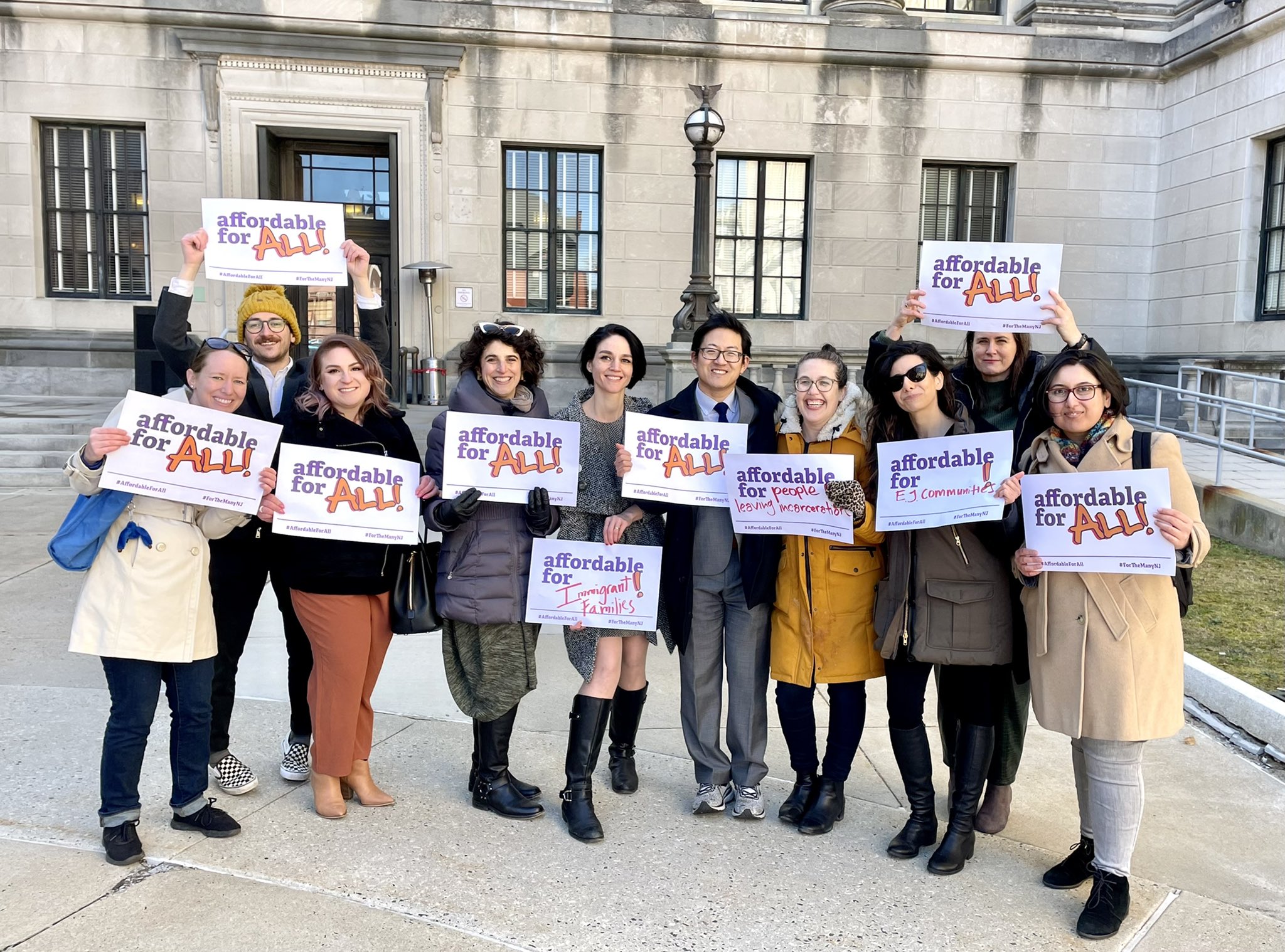Friday Facts and Figures is a weekly newsletter with data points, analysis, and commentary on the biggest policy debates in New Jersey and beyond.
Sign up here.
Vaccine Doses: 14,314,403
Fully Vaccinated People: 6,771,217
[New Jersey Department of Health / COVID-19 Dashboard]
$700
On Thursday, Governor Murphy unveiled a new property tax relief program, ANCHOR, which would provide rebates averaging $700 to nearly 1.8 million residents. The proposal, which would replace the current Homestead rebate program, will be included in Governor Murphy’s budget address this upcoming Tuesday. We’re still waiting on further details of the program to gauge who will benefit the most from it, but in the meantime, NJPP’s Peter Chen sat down with NJ Spotlight News to highlight how renters — who also pay property taxes — need more relief directed their way. [NorthJersey.com / Katie Sobko and Dustin Racioppi]
Upgrade
Remember how then-Governor Christie cut taxes for the wealthy and well-connected, cut government departments to the bone, and the state received 11 credit downgrades as a result? Well, now the state has received its first credit *upgrade* since 2005, thanks in no small part to progressive tax policies enacted during the Murphy administration that bolstered the state’s finances and stabilized the public pension fund. Bookmark this article so you can share it the next time someone tells you New Jersey needs to cut taxes to fix its finances, because this is proof that progressive tax policy is fiscally responsible tax policy. [NJ Spotlight News / John Reitmeyer]
2
This week marks a somber anniversary: It’s been two years since New Jersey reported its first case of COVID-19. Since then, the pandemic has claimed the lives of more than 30,000 New Jersey residents, and roughly 2 million residents have tested positive for the virus. To reflect on the anniversary, New Jersey Monitor asked policy experts — including NJPP’s Peter Chen — to grade the New Jersey state government’s handling of the pandemic. “Part of what the pandemic has shown is that we need robust state governments in order to respond to crises,” said Chen, commending the Murphy administration for rejecting austerity in the face of an unprecedented crisis. [NJ Monitor / Dana DiFilippo, Sophie Nieto-Munoz, and Nikita Biryukov]
22.3 Percent
There are 393,000 households in New Jersey that are behind on their rent — representing 22.3 percent of renters — according to a new report by the Rutgers Center on Law, Inequality, and Metropolitan Equity (CLiME). Even with Governor Murphy boosting eviction protections during the pandemic, COVID-19 has exacerbated the housing crisis, especially in communities of color and urban municipalities where low- and moderate-income households are more prevalent. With the first tranche of Emergency Rental Assistance Program (ERAP) funds set to expire in September and over $1 billion already allocated to the program, there’s still more work to be done to make sure all who need relief receive it to stay in their homes. [Rutgers CLiME / Katherine Nelson]
Equity
Another day, another virtual hearing. The Cannabis Regulatory Commission met on Wednesday and heard suggestions from residents on how to spend tax revenue from recreational cannabis sales. New Jersey’s cannabis legalization law mandates that 70% of revenue be reinvested in communities most harmed by the failed drug war. The ACLU of New Jersey’s Ami Kachalia argued that funding for law enforcement under the guise of community investment goes against this decree: “We want real community reinvestment that supports the kinds of needs — things like social services and harm reduction and educational support and economic development — that truly increase access to opportunity for New Jerseyans and help communities thrive.” NJPP Policy Analyst Marleina Ubel also submitted testimony to the Commission — you can read that here. [NJ Monitor / Dana DiFilippo]
ICYMI
With state lawmakers saying they want to make New Jersey more affordable this legislative session, essential workers and advocates gathered outside the State House on Thursday to ask: “Affordable for who?” Far too often, policy proposals that emphasize “affordability” would actually enrich the already wealthy and big businesses, without making New Jersey truly affordable for all. Click the link to read more about the event and how we can make New Jersey #AffordableForAll. [NJPP]
Pic of NJPP
No pet this week — but for good reason! It’s not often that the NJPP team gets together given the ongoing pandemic, but most of us made it out to the #AffordableForAll press conference yesterday in Trenton. I did not get the memo that everyone decided against wearing their hats (in my defense it was pretty cold out).

Have a fact or figure for us? Tweet it to @NJPolicy.








